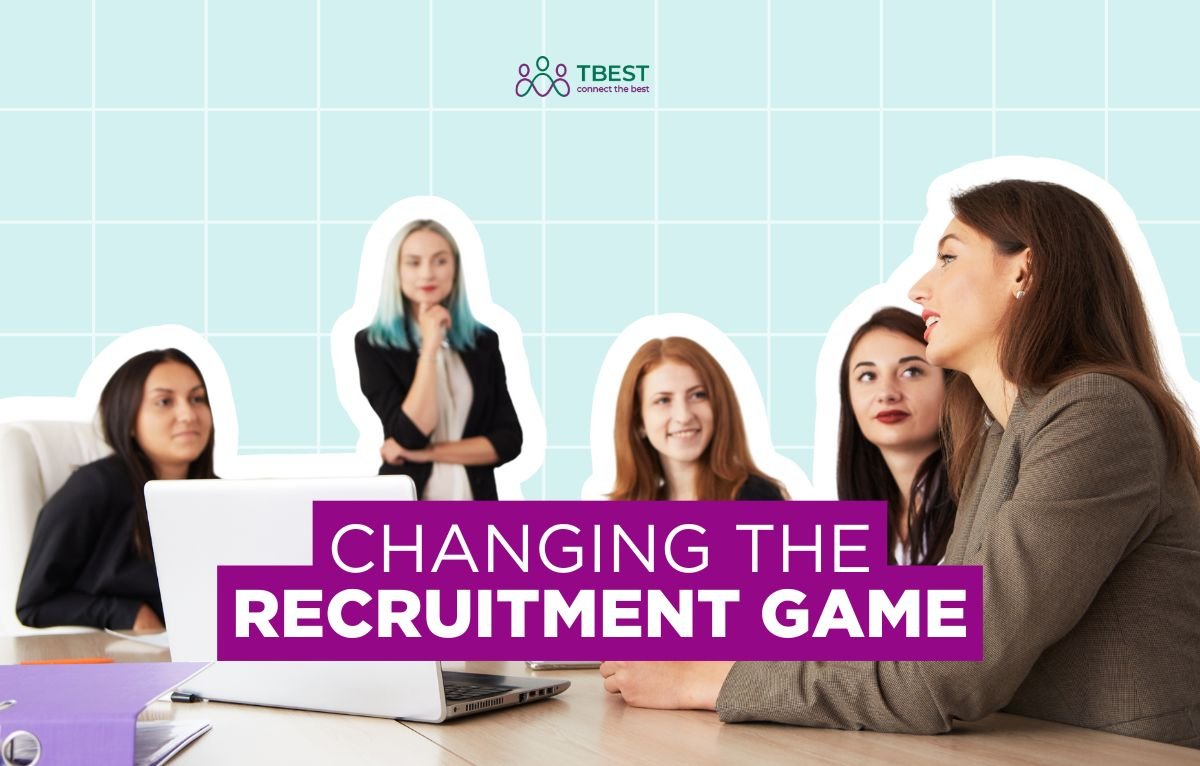
Hiring is not what it used to be. Job seekers have more options, and businesses can’t afford to waste time on long hiring cycles or wrong-fit candidates.
That is where direct hire agencies make a significant impact, particularly when recruiting for high-demand industries such as healthcare.
In sectors like nursing, where demand far outweighs supply, agencies that specialize in direct hire agencies are helping U.S. hospitals and healthcare providers find qualified, long-term staff faster — and often with better retention outcomes.
This shift away from short-term staffing to permanent placements is picking up speed, not just in healthcare but across all industries.
What Are Direct Hire Agencies?
Direct hire agencies help employers find permanent, full-time employees. Unlike temporary staffing, the person hired becomes part of your internal team from day one.
The agency manages sourcing, screening, interviews, and even negotiations. Your company takes over once the hire is made.
Let’s break it down:ompares to managing it internally, especially when factoring in indirect costs like lost productivity and turnover.
| Hiring Type | Worker Employed By | Duration | Common Use Case |
| Direct Hire | Your Company | Permanent | Long-term roles, professional staff |
| Staffing Agency | Third-Party Agency | Temporary | Short-term needs, quick coverage |
| Temp-to-Hire | Initially the Agency | Conditional | Trial before permanent hire |

Agencies that specialize in direct hire — like those placing international nurses in the U.S. hospitals — take a long-term approach.
According to Global Nurse Force, this model supports better integration, stronger retention, and higher satisfaction for both the employer and employee.
Hiring through a direct hire agency is not just about sending resumes. It is a structured, consultative approach designed to match the right person to the right role — the first time.
This process works particularly well in regulated industries like healthcare, where getting the hire wrong is not just costly but also risky.
Whether you’re filling a hospital shift, a construction role, or a corporate position, here’s how the direct hire process typically works:
1. Initial Strategy Call
The agency starts with a one-on-one discovery session. They will ask about your company’s needs, goals, workplace culture, the technical and soft skills required for the role, and how soon the position needs to be filled. This step ensures they are not just matching qualifications, but the overall fit.
For healthcare providers, this call also covers credentialing requirements, immigration or licensing timelines (for international nurses), and staffing goals for patient ratios.
2. Candidate Sourcing & Screening
Agencies tap into their internal databases, job boards, referral networks, and even passive talent pools — reaching candidates who aren’t actively applying but are open to opportunities.
Screening goes beyond resume-matching. It may include:
- Background checks
- Skills assessments
- Reference calls
- Credential verification (e.g., NCLEX for nurses, OSHA for skilled trades)
- Behavioral interviews
Agencies that place international talent, like Global Nurse Force, also assist with immigration paperwork, credential validation, and relocation planning to avoid delays.
3. Shortlist Presentation
Instead of flooding your inbox with resumes, direct hire recruiters present only the most qualified candidates. You get a concise report that includes:
- Candidate summaries
- Interview notes
- Assessment results
- Salary expectations and availability
This step significantly reduces decision fatigue and saves time for busy hiring teams.
4. Interviews & Feedback
You choose who to interview from the shortlist. The agency coordinates scheduling and preps candidates so they’re informed and aligned with your expectations. After interviews, they gather feedback from both sides and help manage concerns or misalignments early on.
If hiring internationally — like nurse placements — the agency may also coach candidates for U.S. workplace norms and help them prepare for panel interviews or licensing board questions.
5. Offer Negotiation
Once you have selected your ideal candidate, the agency manages the offer: the salary, benefits, start date, relocation (if needed), and any visa-related items. This prevents back-and-forth delays and ensures everyone is on the same page.
They also act as a buffer, resolving sensitive issues like counteroffers, resignation timelines, and salary adjustments in a professional way that maintains goodwill.
6. Onboarding & Follow-up
Unlike temp staffing, direct hire agencies do not disappear after placement. Many stay involved during the first 30–90 days to help with onboarding, resolve early issues, and make sure the new hire is settling in well.
For international nurses, onboarding might include cultural training, housing assistance, and helping them transition into a U.S. healthcare setting. This extra layer of support reduces attrition and builds loyalty from day one.

Why This Process Matters
According to Global Nurse Force, direct hire models are especially effective for long-term retention, with nurses placed through this method staying in their roles 60–70% longer than those hired through traditional temp contracts.
By outsourcing these complex and time-consuming steps to a direct hire agency, you’re not just filling a role — you’re investing in a lasting hire who adds value from day one.
Direct Hire vs. Staffing Agency
Choosing between a direct hire model and a staffing agency comes down to what your business truly needs: stability or flexibility.
Here’s how they compare:
| Factor | Direct Hire | Staffing Agency |
| Employment Type | Full-time, permanent | Contract or temp |
| Team Integration | Hired into your team directly | Works under agency |
| Retention | Higher (12+ months) | Lower (role ends with contract) |
| Cost Structure | One-time fee (15–25% of salary) | Ongoing hourly markup |
| Use Case | Long-term roles, skill-specific hiring | Short-term projects, urgent gaps |
Why it matters
For roles that demand consistency — like licensed nurses, project leads, or engineers, —the direct hire is often the better choice. It leads to better retention, stronger cultural fit, and less turnover.
Global Nurse Force highlights that direct hire employees, especially in healthcare, show greater long-term commitment because they feel more secure and invested in their roles from day one.
If your business needs people who’ll stick around, grow with the company, and integrate seamlessly into your team, direct hire offers a more sustainable solution.
When to Choose Direct Hire Services
Direct hire makes the most sense when the cost of a bad hire — or a constant turnover — is simply too high.
You should consider working with a direct hire agency if:
- You’re recruiting for a specialized or licensed role (like RNs, engineers, certified techs)
- Your internal HR team is stretched thin and can’t keep up with multiple openings
- You’re hiring for positions critical to operations — where continuity and skill are non-negotiable
- You’ve had issues with short-term staff not sticking around, or onboarding people who aren’t a culture fit
In the healthcare sector, where continuity of care matters, direct hire leads to better patient outcomes. For businesses, it means you can focus on growth instead of backfilling roles every few months.
Real-world example: According to Global Nurse Force, hospitals that use direct hire to place international nurses report higher retention and lower burnout rates. The nurses benefit from a stable career path, while the employer gains a committed, long-term team member.
What It Costs — and Why It’s Worth It
Hiring through a direct hire agency usually involves a one-time fee — typically 15% to 25% of the candidate’s first-year salary.
While that might seem steep at first glance, here’s why it often pays off:
- You save time on sourcing, screening, and coordinating interviews
- You avoid productivity loss from unfilled roles or mismatched hires
- You reduce the risk of a bad hire (which can cost 30%+ of a role’s annual salary)
Most agencies also provide a guarantee period — if the hire leaves within 60–90 days, they’ll replace the candidate at no extra charge.
Do I still get to interview and make the final decision?
Yes. Agencies act as matchmakers — they bring you the best options, but you’re always in control of the final hire.
Are direct hire services suitable for healthcare and licensed positions?
Definitely. In fact, they’re increasingly the go-to model for hospitals hiring international nurses or long-term clinical staff. The process includes credential checks, licensing support, and relocation help.
Is this better than hiring temps or contract workers?
It depends on your goals. But if you’re looking for stability, long-term value, and someone who’ll grow with your company — direct hire is the better fit.
Choosing the Right Direct Hire Agency
Not all agencies operate the same way. To avoid frustration, look for one that offers:
- Industry-specific experience (especially in healthcare, skilled trades, or engineering)
- A thorough vetting process beyond just resume scans
- Transparent pricing and a clear replacement policy
- A built-in support system for onboarding, especially for international hires
A strong agency should function like an extension of your team — not just a resume-pusher.
Direct Hire Is the Long-Term Solution
When you’re hiring for roles that keep your business running — whether that’s a nurse in an ICU or a licensed technician on a job site — short-term fixes won’t cut it. Direct hire agencies help you find the right person, not just the next available one.
At TBest Services, we specialize in matching qualified professionals to long-term roles across industries. From Medina, New York, to Las Vegas, Nevada, our goal is to take the pressure off hiring so you can focus on growing your team — and your business.
